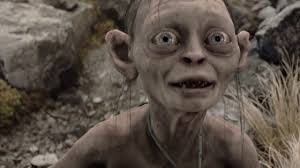
Killing My Precious
This one is about writing. Well, my writing, that is. I try to give little tips on Instagram, and most of the tips I share are ones I learned from articles or books by other authors. Some things I have learned along the way from experience, but those are more regarding edits and after I finish the first draft.
Today I was thinking (I do that sometimes), and I remembered one of the early struggles I had when I started writing. Luckily, I also remember what I did to fix it, so I will share it with you.
While my current book is the only one I’ve finished, I started another book years ago (I call it The Unfinished Book). Like a dummy, I put it down for a couple of weeks instead of writing every day like Stephen King told me to do. Okay, he didn’t actually call me up and tell me to do that—it’s in his book. But I like to pretend we are friends and he personally gives me advice. It’s more fun that way. Anyway, when I first started writing The Unfinished Book, I had this odd desire to write a detailed account of every little thing that happened.
For example: In My Name is Erin, and My Mom’s an Addict, I write about a dance that Erin attends with her friend, Grace. In it, I talk about them paying for their tickets and how the gym looked when they went in. If this book had been written when I first started, the beginning of that scene may have looked something like this:
We pulled into the school parking lot. I unfastened my seatbelt and got out of the car. Grace got out too, and we walked to the back of the school where the gym is located. We went in and stood in line. There were about ten other people in front of us, so we had to wait in line for a few minutes. When we got to the front of the line we gave the lady our money, and she told us to have a nice time. We walked to the gym entrance.
That’s pretty bad, isn’t it? It sounds more like an instruction manual than a story. I had to learn that I don’t have to (and shouldn’t) give the reader a play-by-play description of each scene…especially when it adds nothing to the story. Does the fact that there were ten other people in line add to the story? Nope. Does the reader need to know that Erin unfastened her seatbelt and got out of the car? Of course not, because the reader infers it—if she doesn’t unfasten her seatbelt, she’s obviously not going to be able to get out of the vehicle. Now, if Erin had cut her finger as she unfastened her seatbelt, resulting in a trip to the ER (which caused her to miss the dance), then it would be important. But that’s not what happens, so I didn’t write it. In fact, the drive to the dance was of no importance, so here’s what that scene ended up looking like:
We got to Grace’s house, and she came out wearing jeans too. I wished that Good Jimmy had stayed good until after the dance. I wanted to spend time alone with George but that wasn’t going to happen now that Grace didn’t have Jimmy to distract her. I knew it was selfish, and I felt bad; after all, she was my best friend, but this was also the only chance I had to be around George outside of class. I hoped a cute, nice guy would come and talk to Grace. That way, we’d both have a great time, and I wouldn’t feel guilty.
The lady at the door took our money and gave us tickets. “Have a good time, ladies,” she said. We thanked her and headed for the gym.
I felt like Erin’s thoughts and feelings about the dance were more important than the drive to the dance; so, I talked about those things, wrote nothing about the drive, and only put a couple of quick sentences about their arrival.
In another scene, Erin goes to a meeting for the first time. I give more detail about that arrival because I want the reader to feel the same things Erin is feeling (she has no clue what will take place at this meeting; in fact, she doesn’t even know which door to go to). We’ve all gone somewhere new before and thought, “Is this the right place? Did I get the address right?” So, I also felt like the reader could relate to her apprehension and confusion.
I read something one time that said as a writer, sometimes you have to “kill your darlings.” Basically, that means if I write a scene and I LOVE that scene, if it doesn’t add value to the story, I should kill it…even though I LOVE it; even though it’s my darling. Or, as Gollum would say, “My precious.”
I didn’t end up having to kill many darlings and the reason I didn’t is that unless I felt like something was important to the story, I didn’t write it to begin with. This is my first finished book, though, so there may be some darlings that survived. Maybe, because I’m a greenhorn, I didn’t recognize that they had no place in the story. But mostly, I think I did okay. I was able to recognize my instinct to write in a play-by-play fashion, and refrain from doing it. I’ve said before that I’m no Hemingway, and regardless of how much I write, I never will be.
But I will keep writing, I will keep learning from my mistakes, and hopefully, I’ll improve with each attempt. And I won’t write any instruction manuals or playbooks. I hope.
